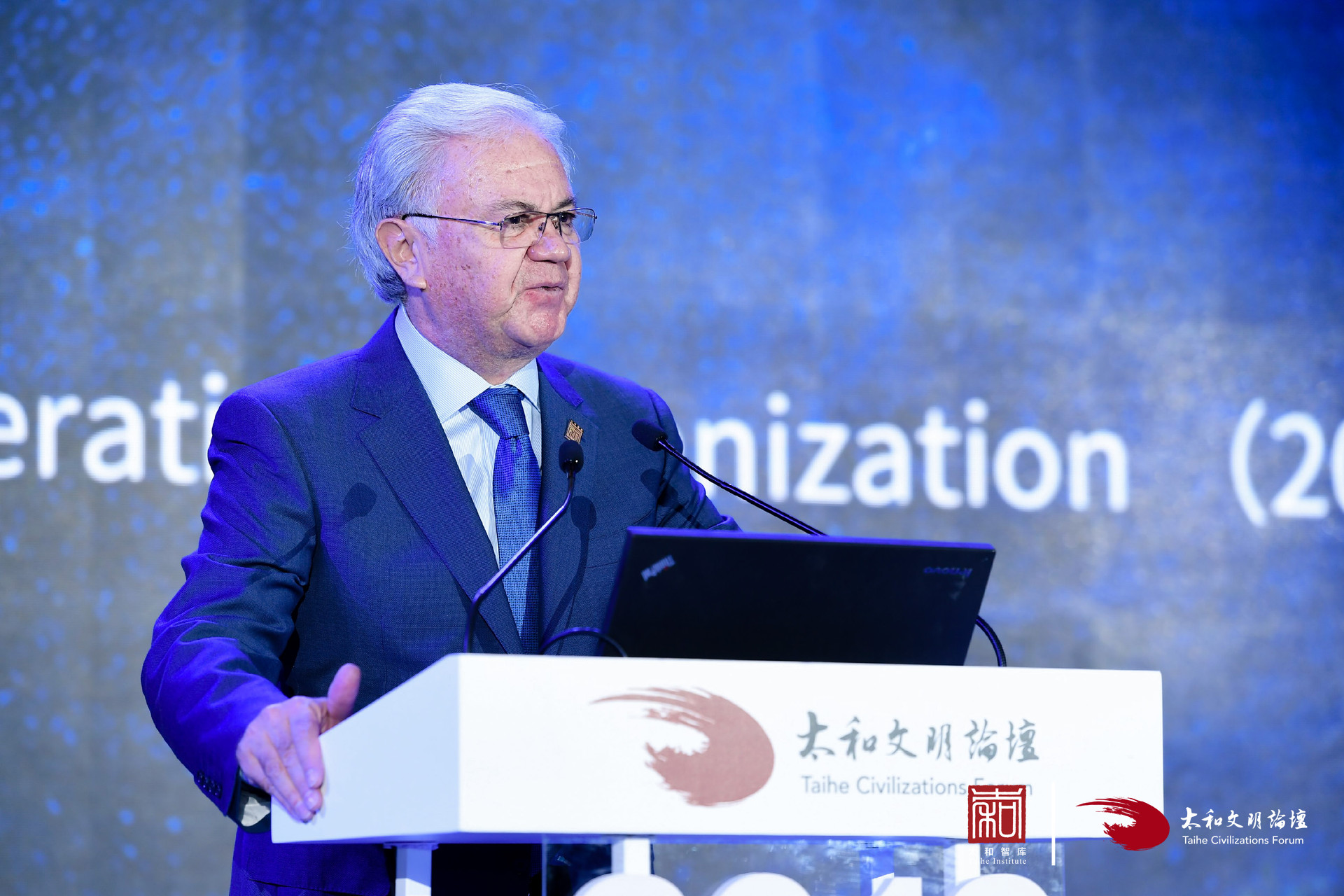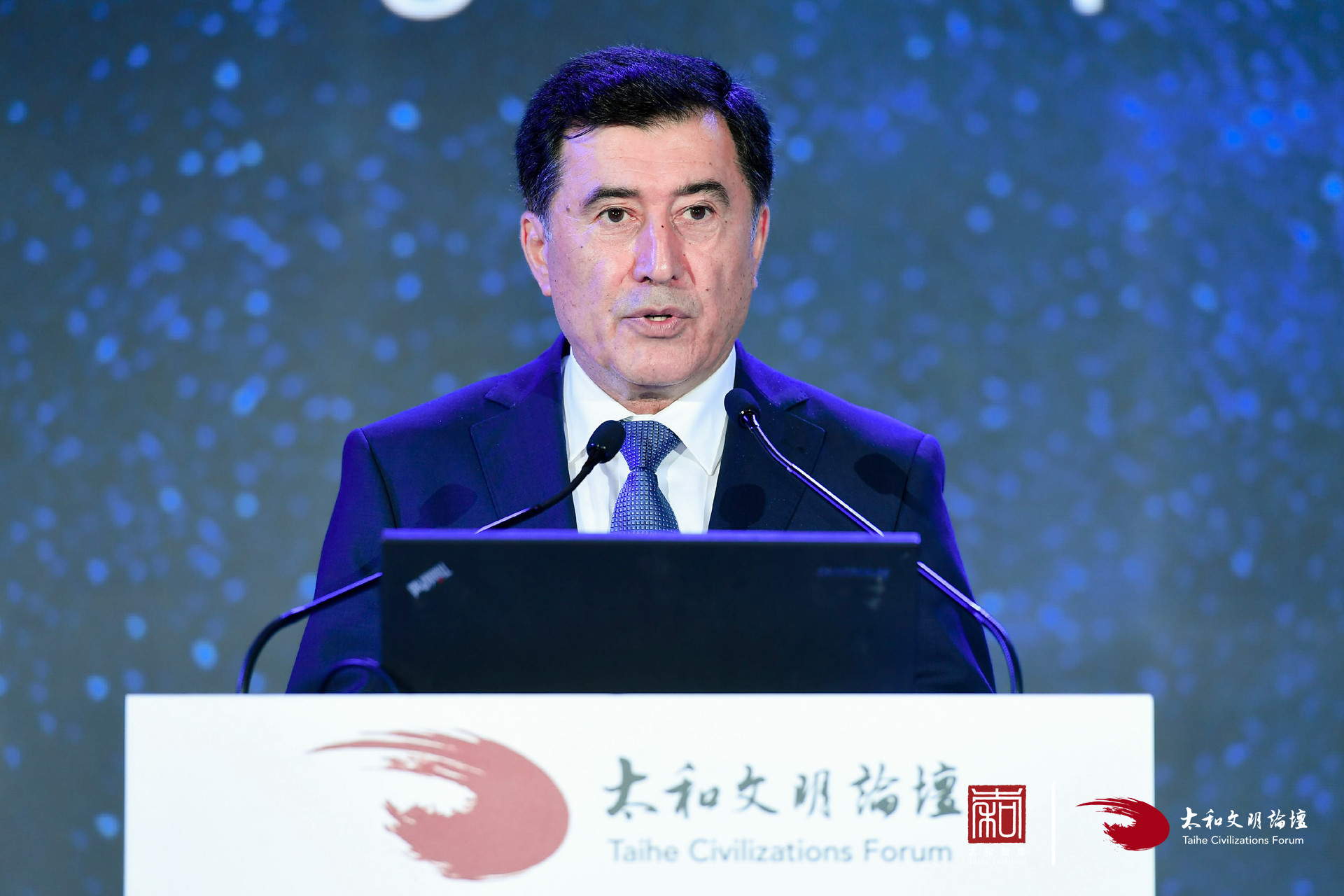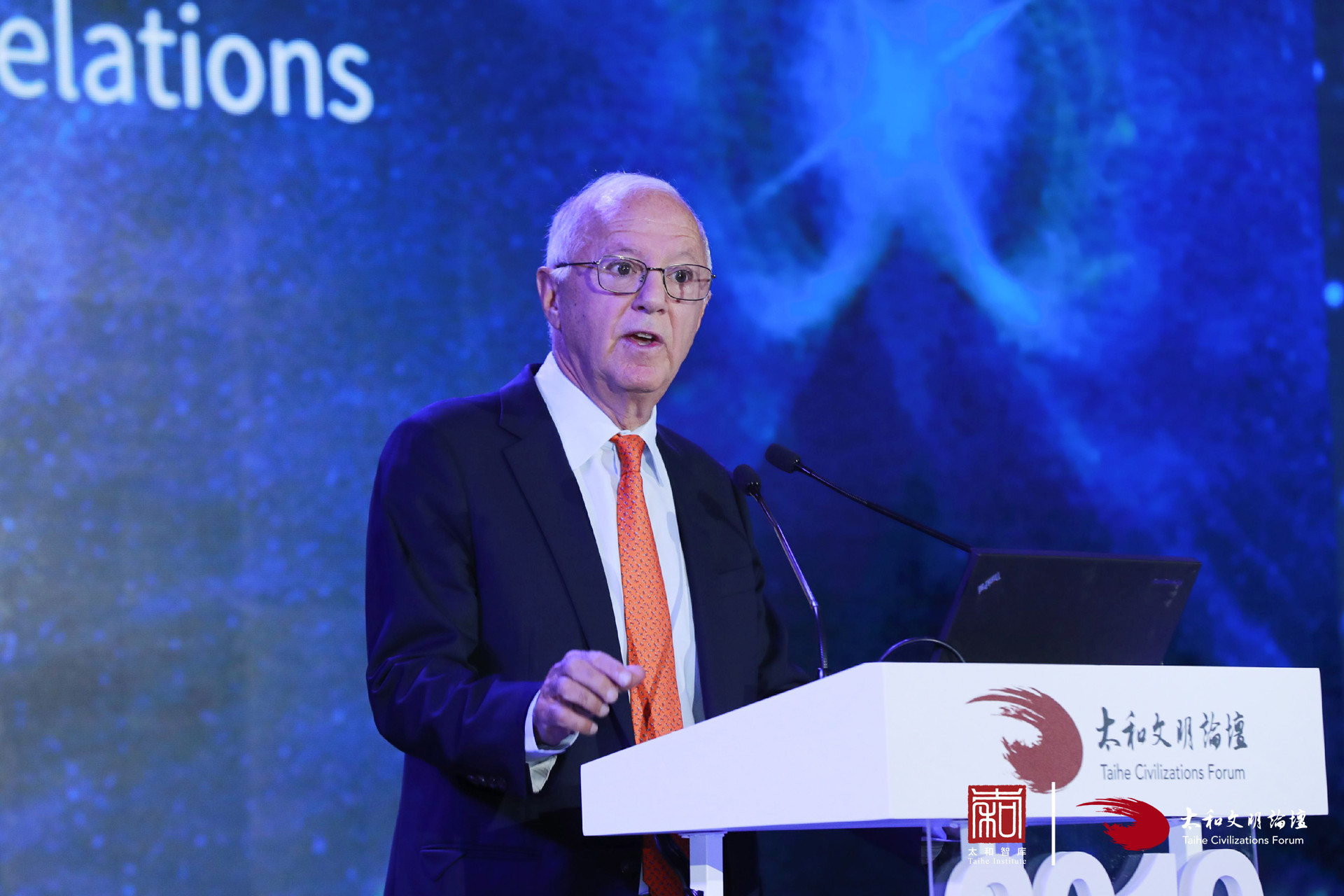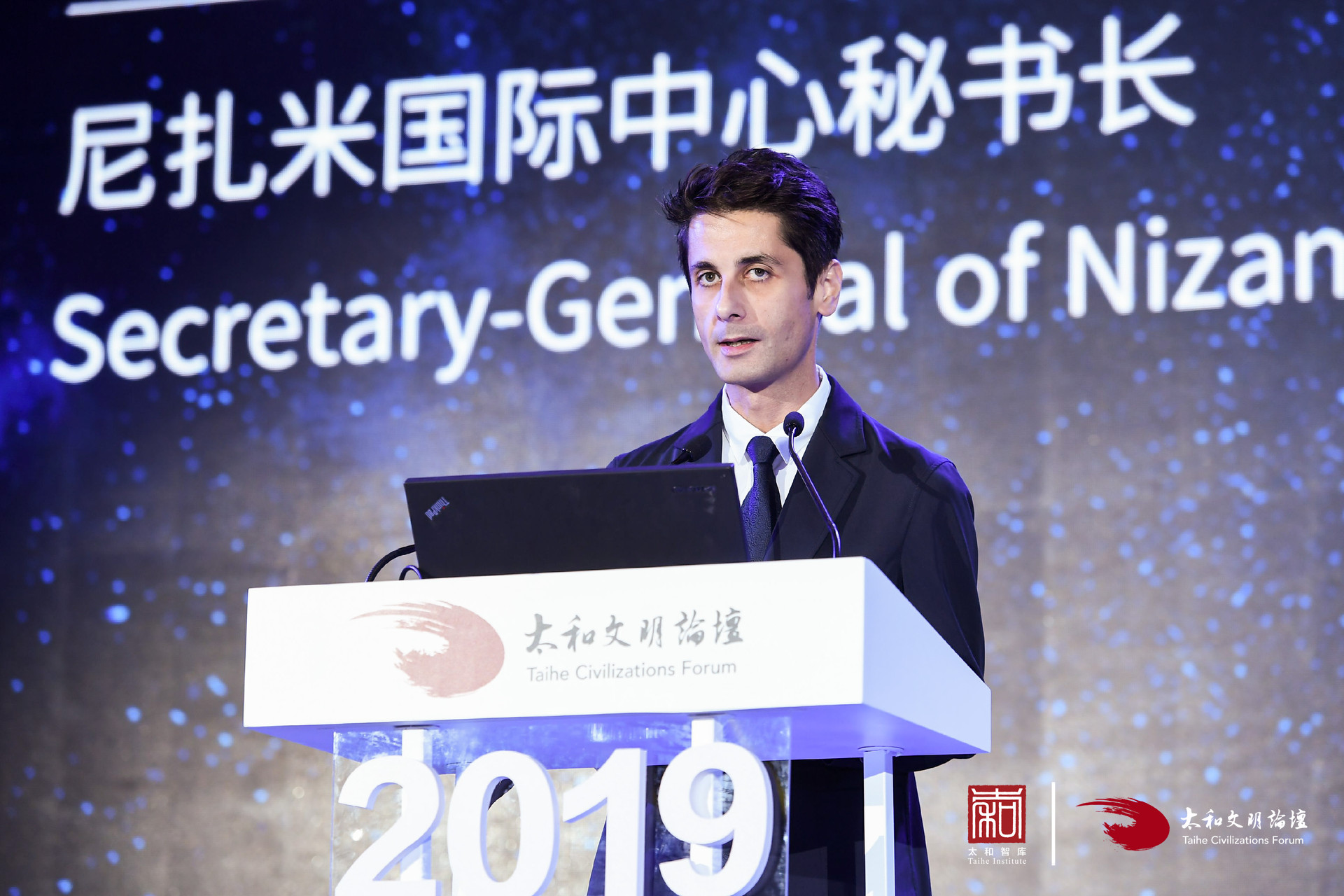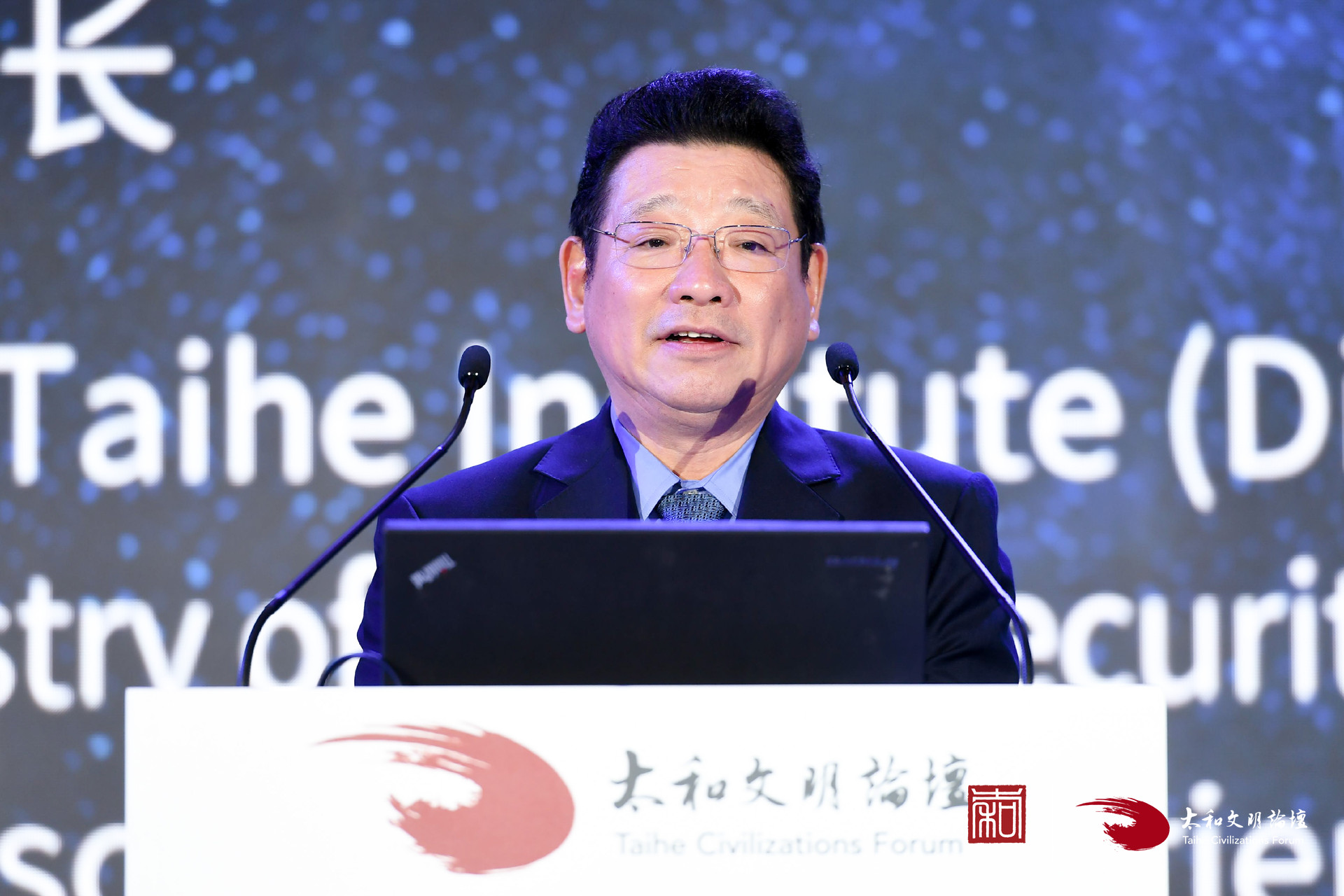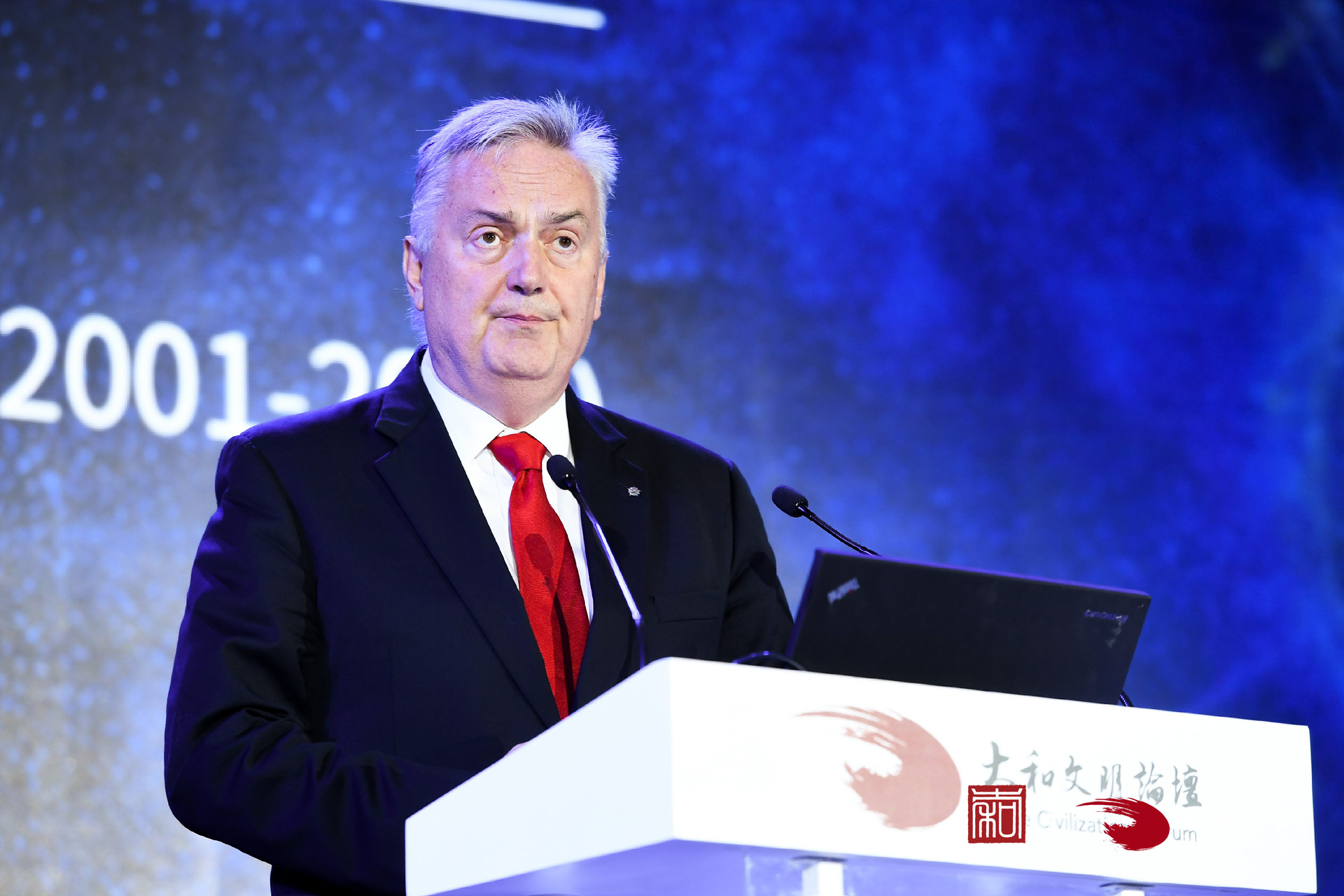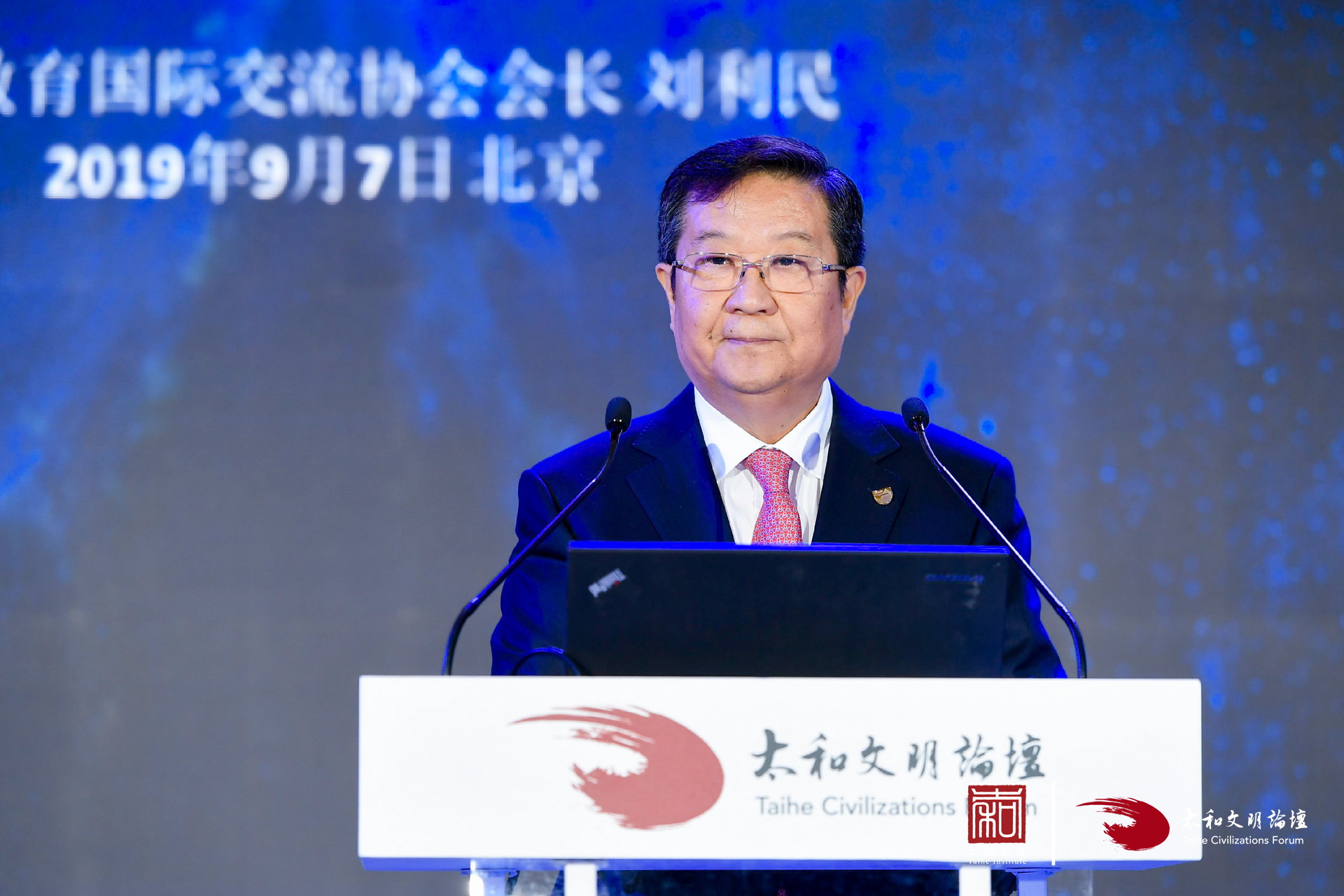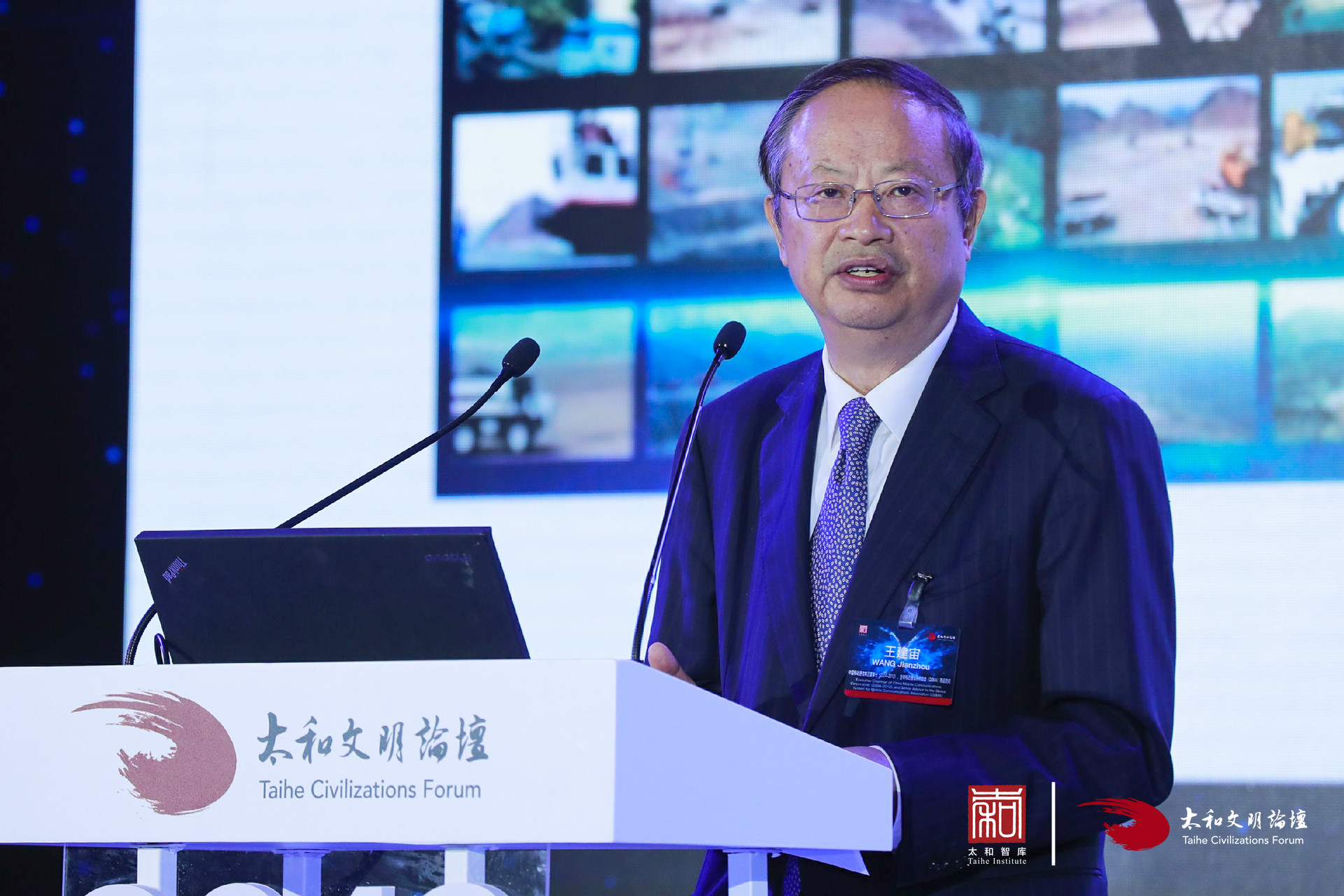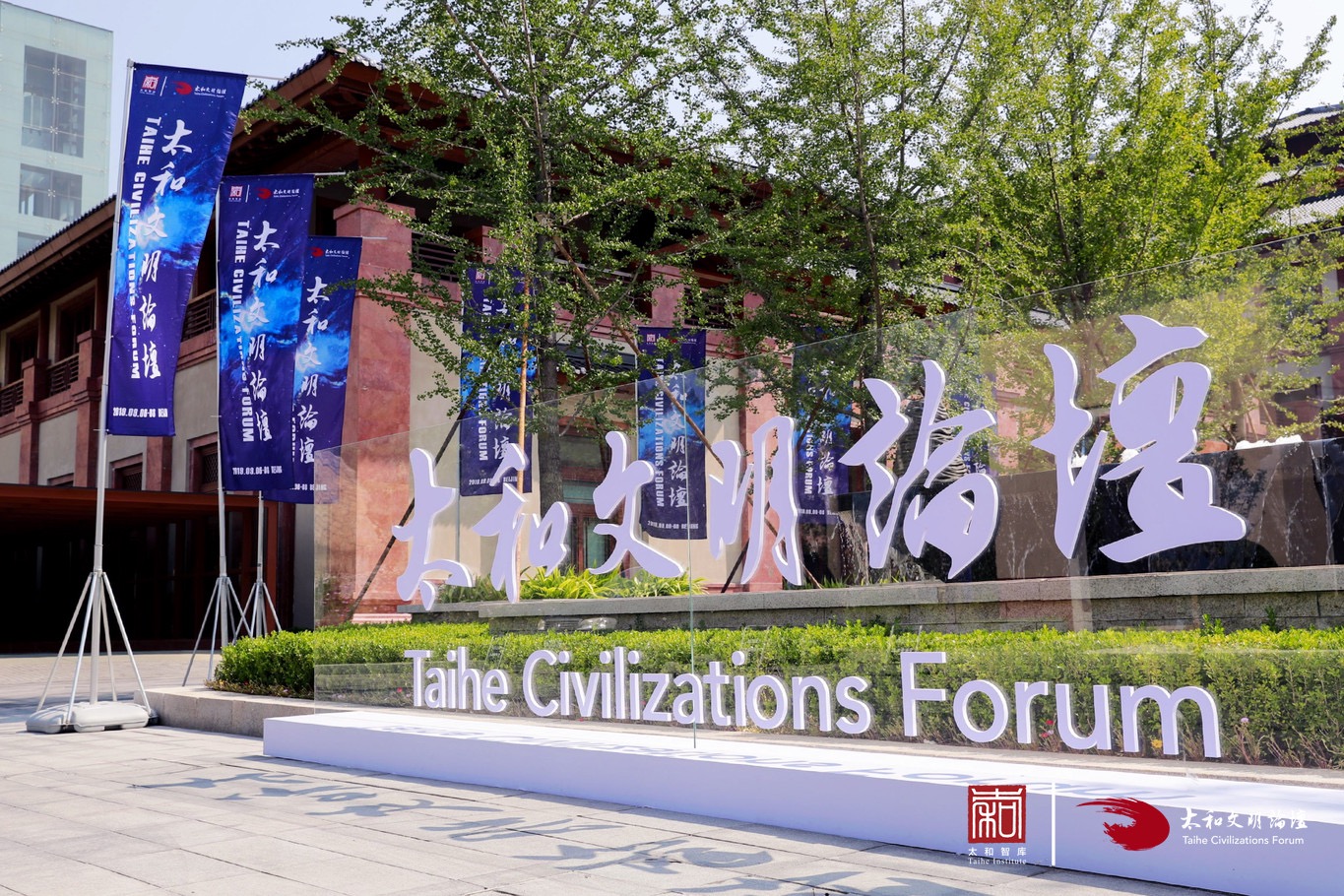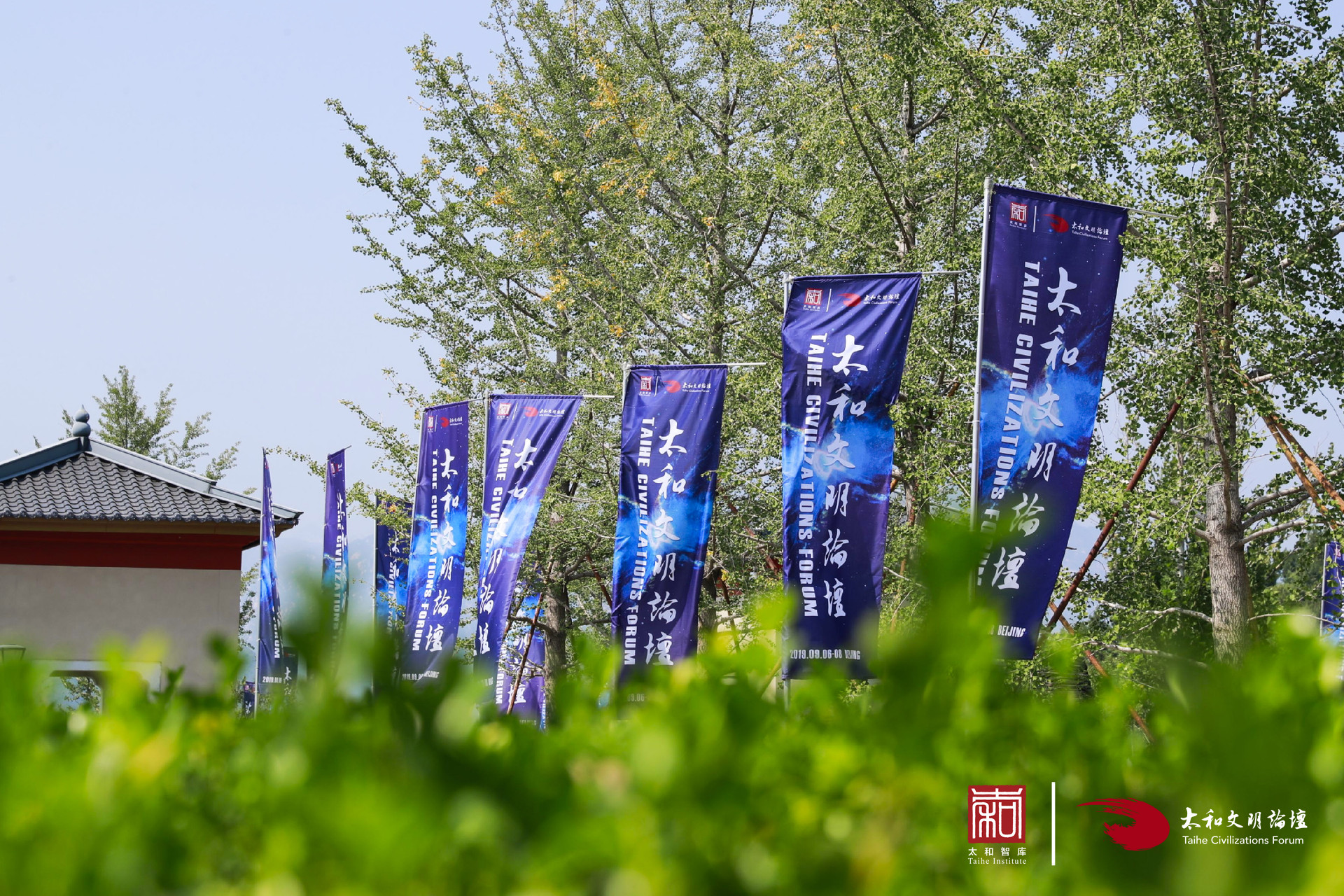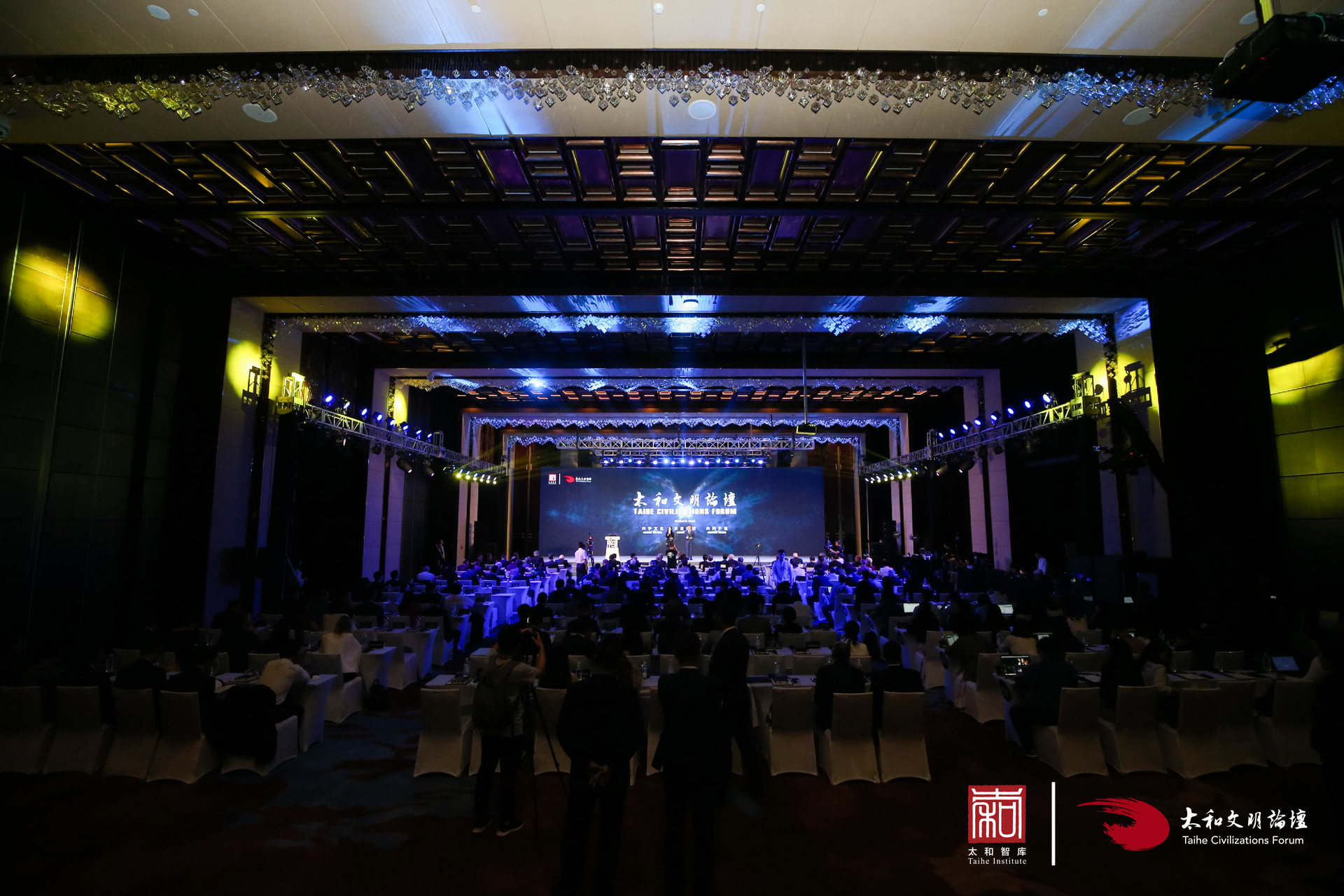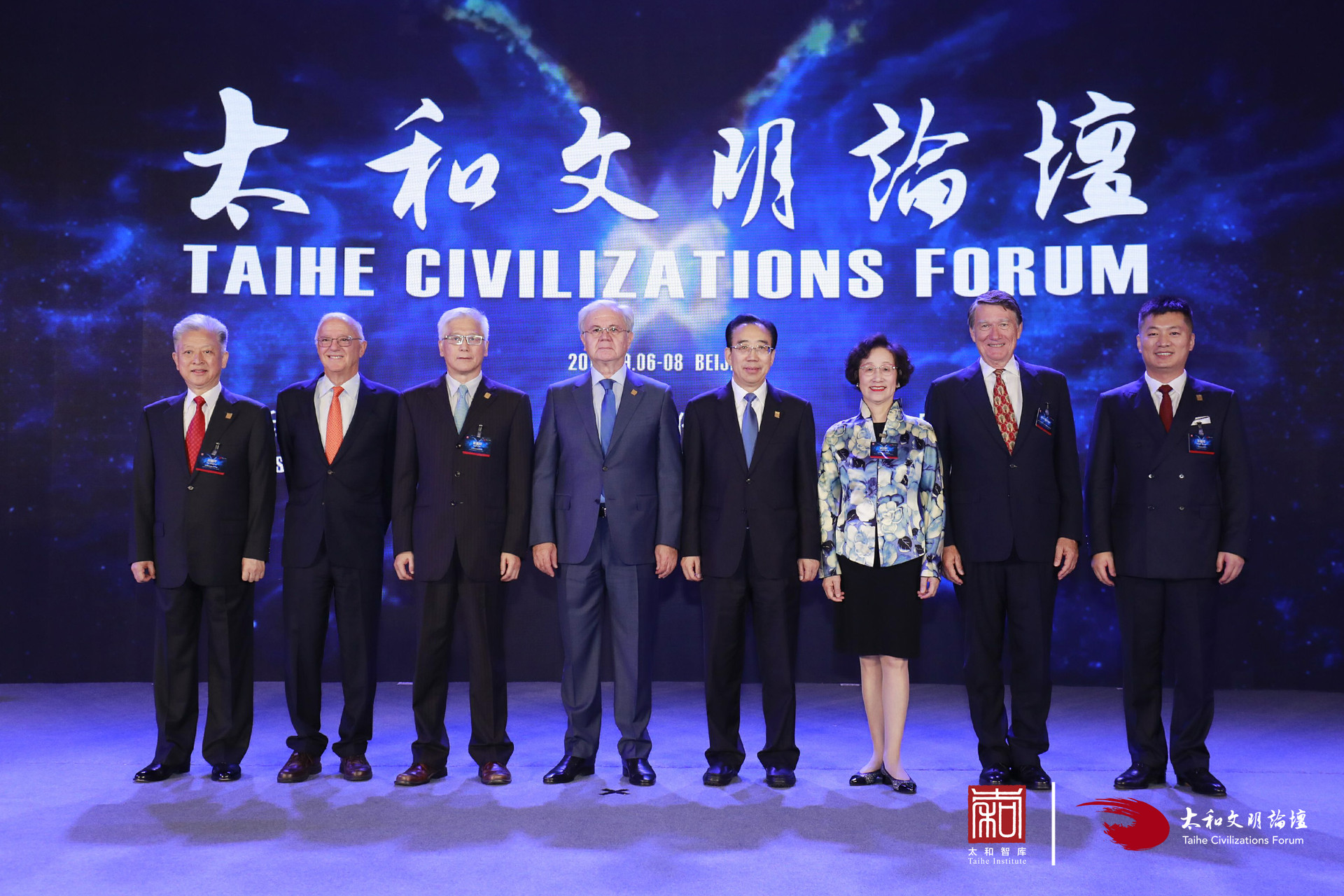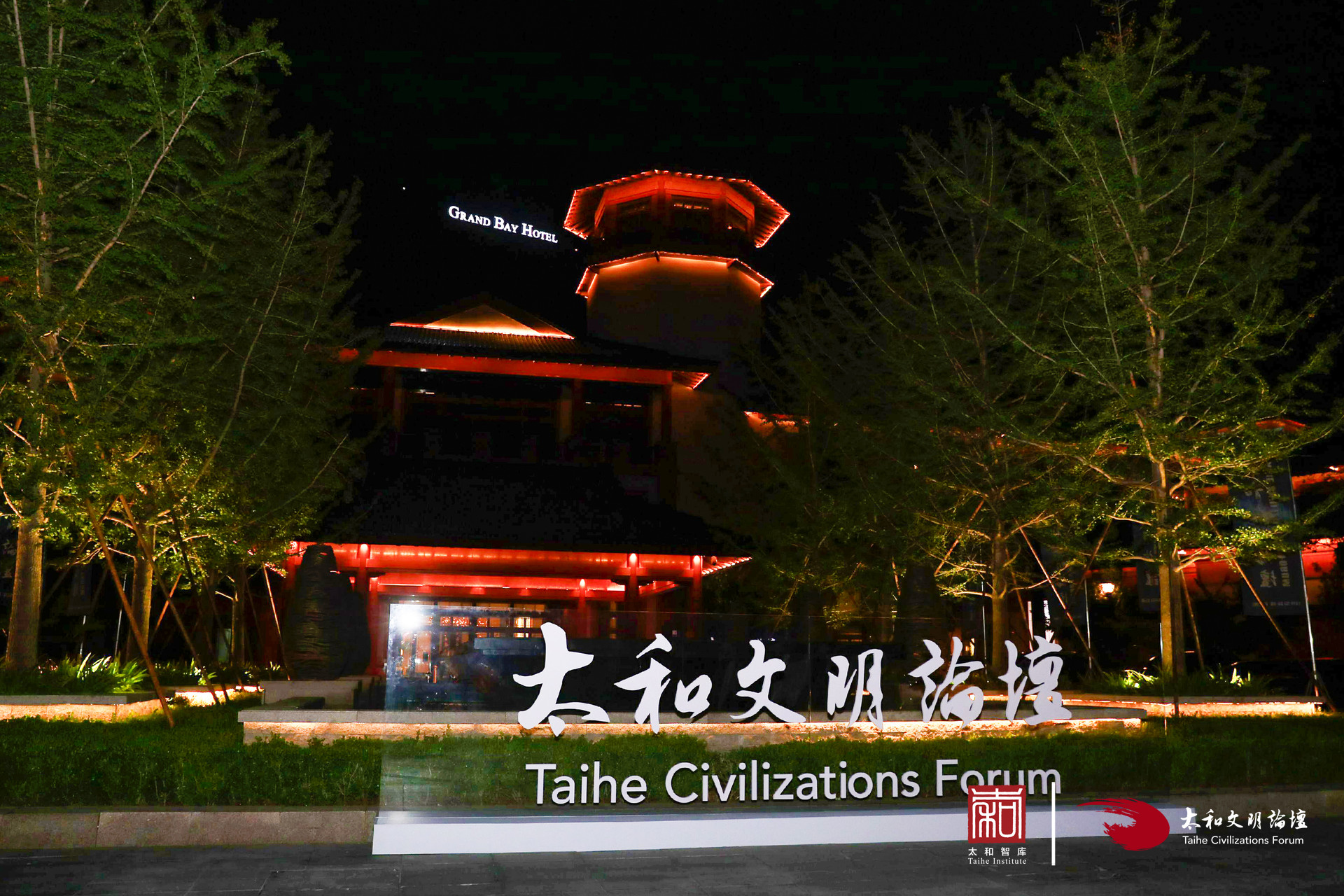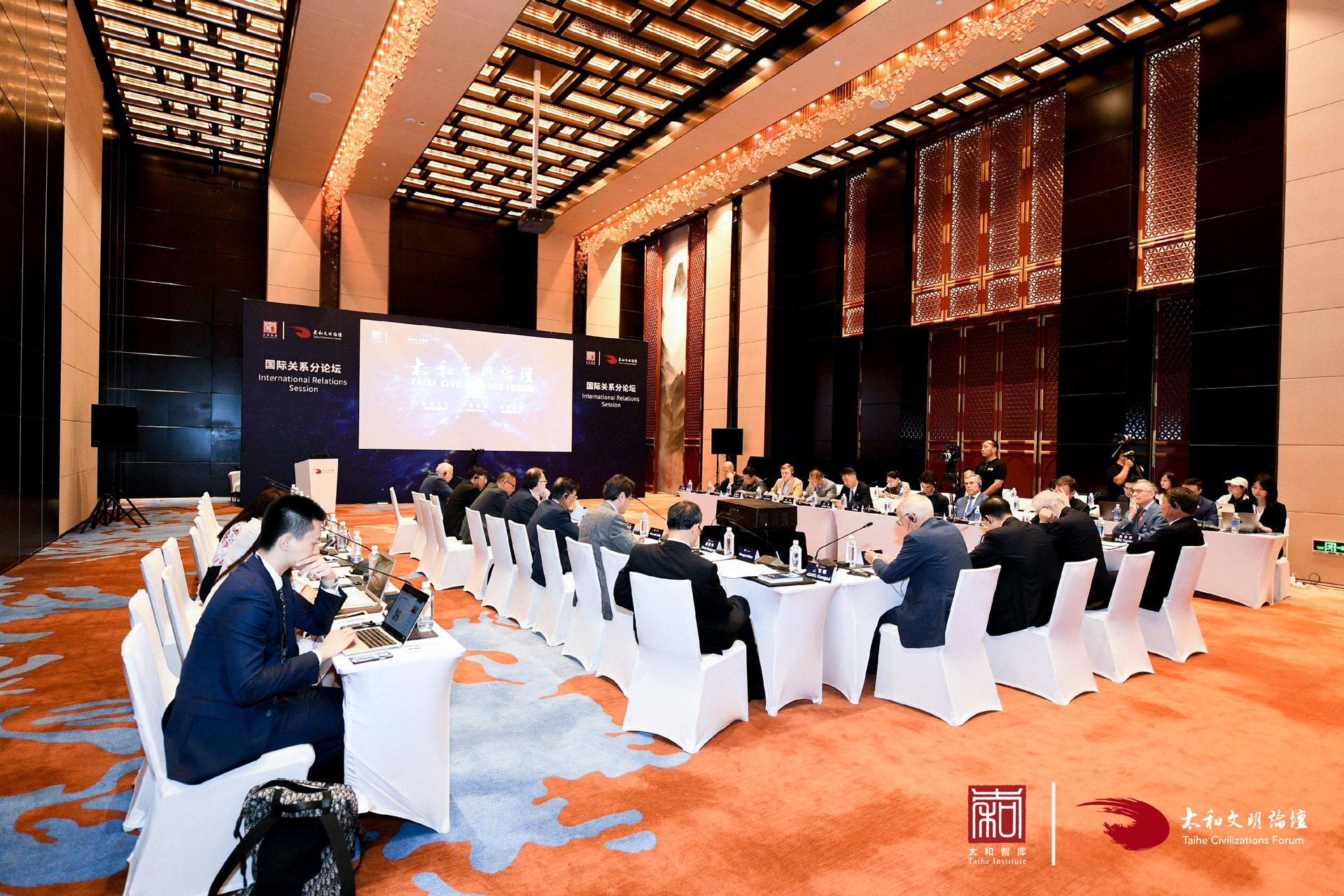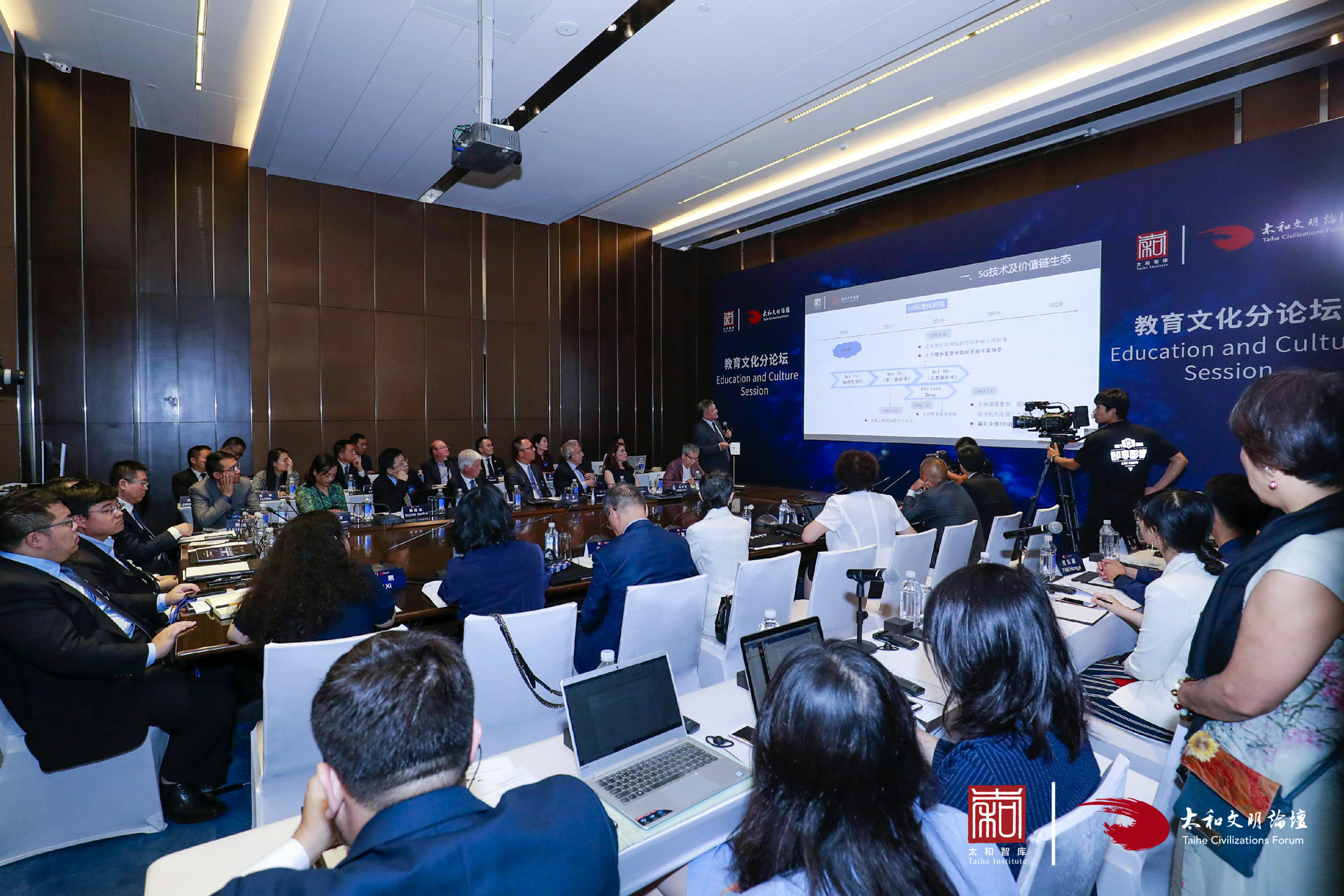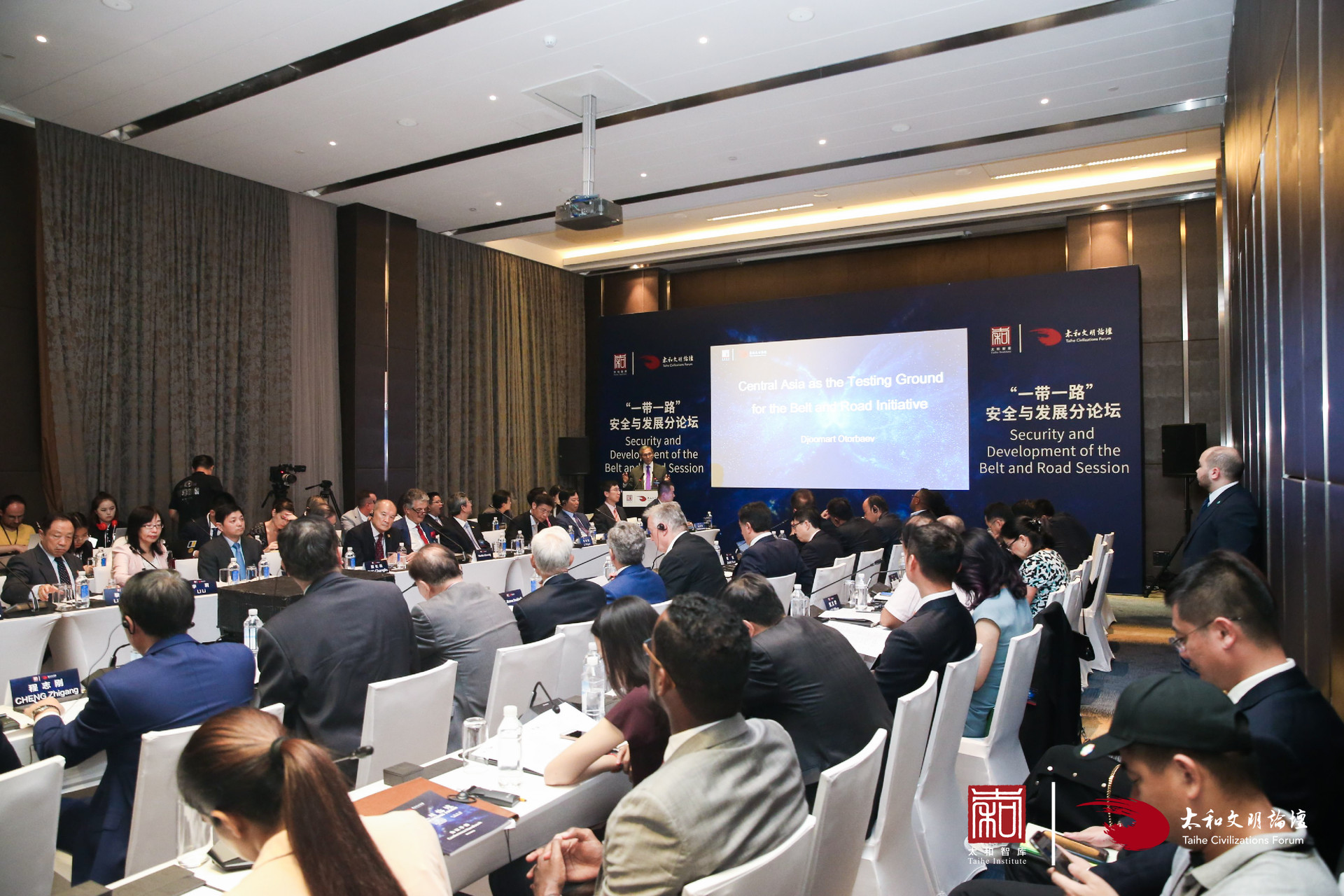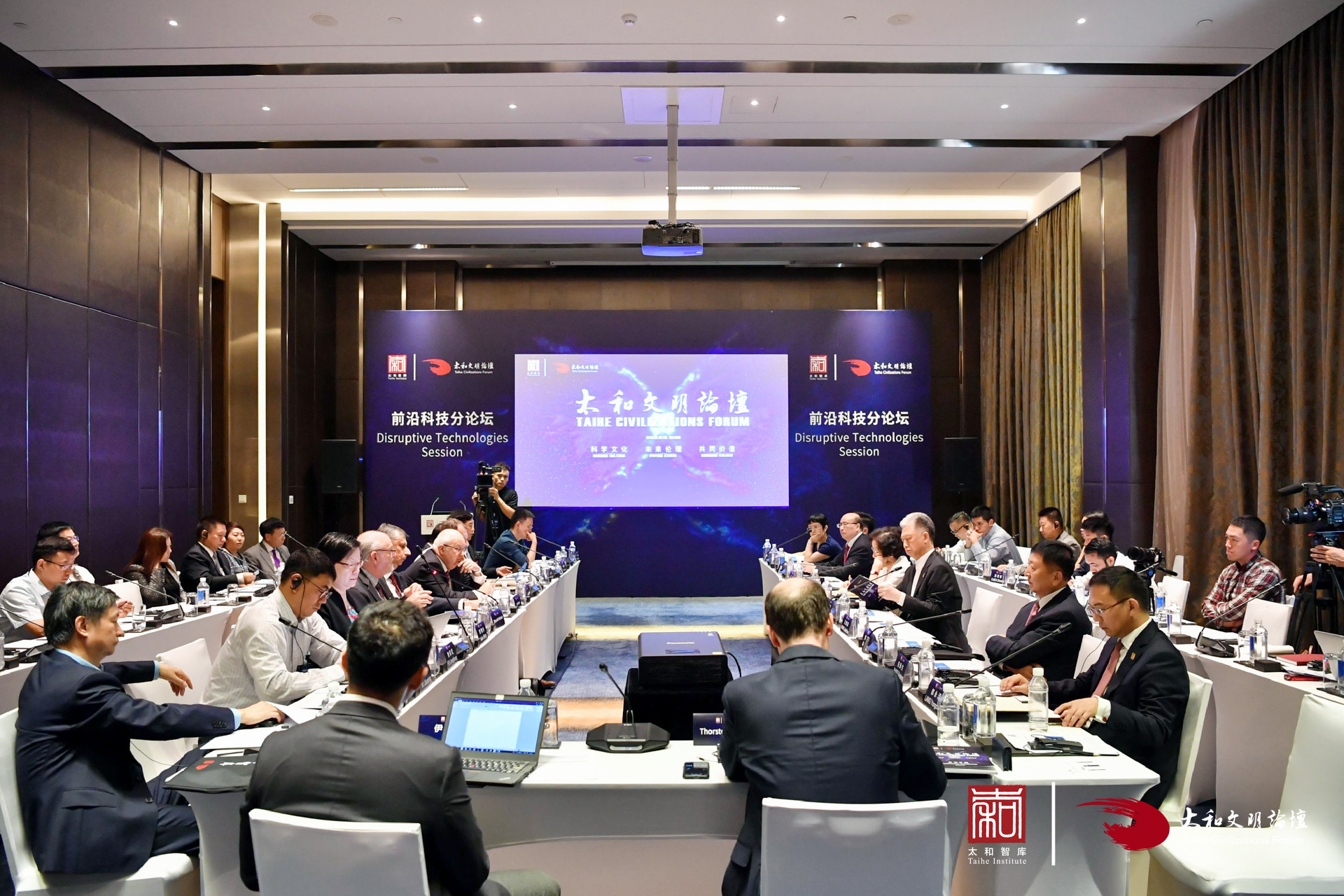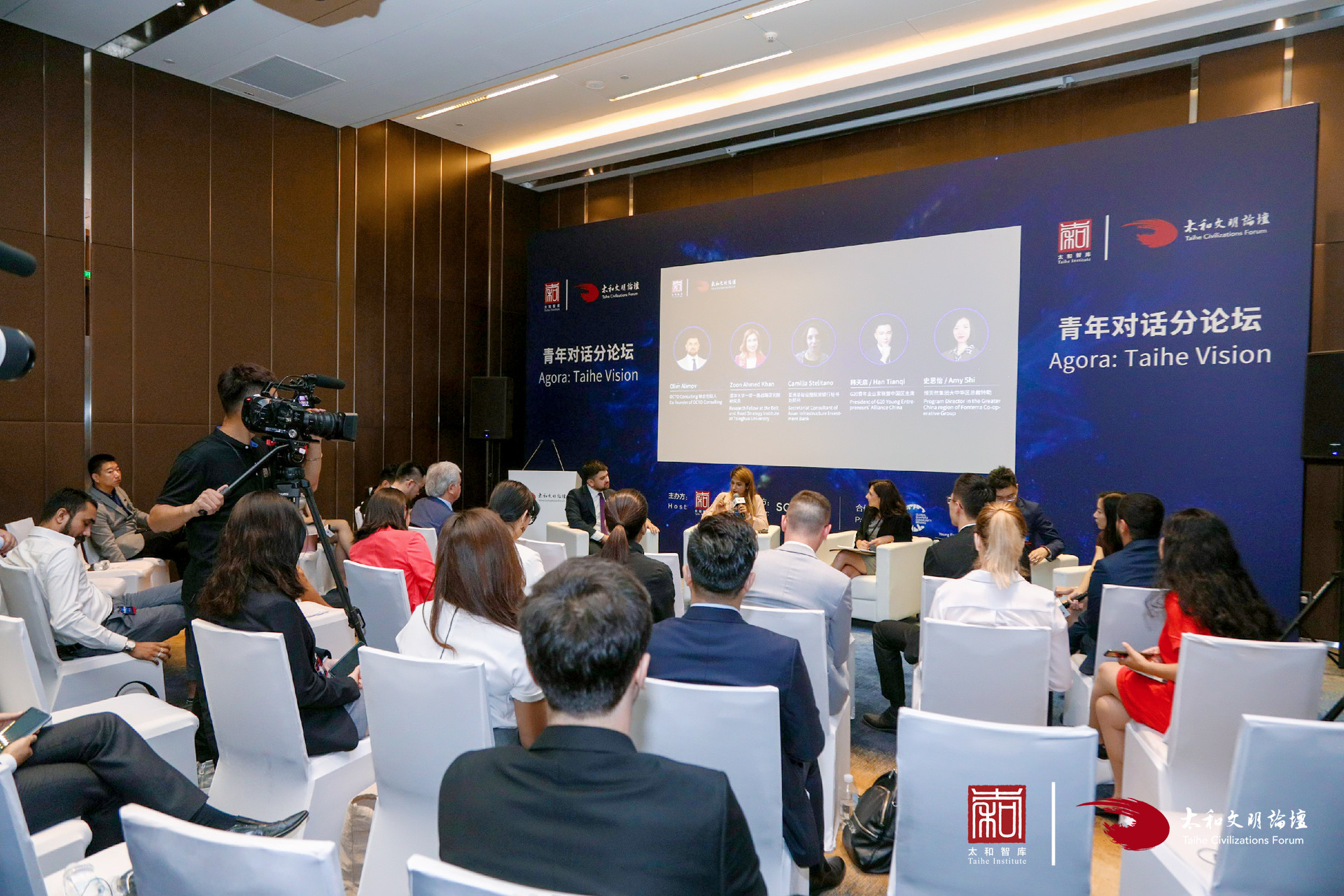It is noted in the I Ching, or Book of Changes, a Chinese ancient classics, that “maintaining Taihe will help develop everything smoothly.” That said, Taihe stands for a supreme harmony. Such harmony can be achieved through coordination and collaboration among all things and the unity of their nature. Taihe symbolizes the ancient wisdom of life which guides people to rediscover the true meaning of their world. The purpose of Taihe is to obtain continuous wisdom and momentum through the creation of common values.
Nowadays, lack of Taihe seriously challenges contemporary human civilizations. Rapid technological development, climate change and environmental degradation, uneven wealth distribution, and geopolitical tensions are some of the significant threats undermining our common values and civilizations. Human civilizations may fall into the abyss without gathering wisdoms and taking actions.
The Taihe Civilizations Forum (TCF) has been initiated to engage global leaders of all fields in supporting "the harmonious development of common values and the advancement of human civilization." The TCF focuses on global and regional challenges, explores root causes, identifies and promotes possible solutions, as well as facilitates communication and impacts creation across borders.
The TCF follows four principles to define the research agenda, guide its work and actions, and effectively contribute to the overall Forum objectives:
• Impartiality: maintaining a diverse, open, also rigorous mindset and aligned actions;
• Globality: fostering international participation and collaboration;
• Foresight: focusing on far-reaching trends and long-term solutions;
• Impact: transforming insights into actions and impacts.
The first Taihe Civilizations Forum was held in Beijing from August 25th to 27th, 2017, focusing on advancing human civilizations and developing common values. Approximately one hundred leading experts from business, governmental, international organizations, and academic sector gathered together to discuss on the topics such as people-to-people exchange, climate change and sustainable development, and artificial intelligence.
Keynote speakers at the opening ceremony of 2017 TCF included:
Boping GU, member of the National Committee of CPPCC, and the Chief Cultural Scholar of Taihe Institute;
Thorsten Jelinek, Director of the European Center of Taihe Institute;
Hailong WU, President of the Chinese People's Institute of Foreign Affairs;
Stephen Orlins, President of the National Committee on U.S.-China Relations;
Hongjun YU, former Vice Minister of the International Liaison Department of the CPC Central Committee;
Cheng Li, Director of the John L. Thornton China Center and Senior Fellow of the Foreign Policy program at Brookings Institution;
Liru CUI, Senior Advisor and Researcher of the China Institute of Contemporary International Relations;
Yifan DING, former Deputy Director of the Institute of World Development, Development Research Center of the State Council.
We are very pleased to inform you that the third Taihe Civilizations Forum (TCF) will be held from September 6 to 8, 2019 in Beijing, China. Initiated by Taihe Institute in 2017, the TCF, with the theme of "Science Culture · Future Ethics · Common Values", has been aiming to facilitate the exchange of and mutual learning among civilizations, countries and regions, and promote the harmonious and sustainable development of human society.
Since its foundation, the TCF has gathered together approximately 500 leading experts from business, governmental, international organizations, and academic sectors with heated discussions on the topics such as International Relations, People-to-People Exchange, Advanced Technology and Sustainable Development, and has become a well-known international platform of communications. The 2019 TCF will be comprised of five sessions: International Relations, Education and Culture, Advanced Technology, Security and Development of B&R and Youth Dialogue.
a. What are the key issues that need to be addressed and resolved regarding Sino-U.S. economic and trade relations? And how will it develop?
b. What conflicts will arise between China and the U.S. in the issues of Taiwan, the South China Sea, the Korean Peninsula, and high-tech competition?
a. What problems are there in the current international order and what are the future development trends?
b. What role and influence does the Belt and Road Initiative play on the construction of a realistic international order?
c. How to understand the concept of “a community of shared future for mankind” and its relationship with the realistic international order?
a. Can the current contradictions between China and the U.S. be addressed as civilized conflict?
b. Differences and conflicts between different civilizations and global governance.
| Friday, September 6th, 2019 | |||||
| Time | Agenda | Location | |||
| 10:00-17:00 | Check-In and Registration | South District | |||
| 12:00-13:30 | Lunch (buffet) | North District, Café for Buffet | |||
| 14:00-16:30 | Sub-sessions Preparatory Meetings | 2nd Floor, Meeting | |||
| 17:00-18:30 | Cocktail Party(Business Casual) | 5th Floor, Grand Ballroom | |||
| 18:30-20:30 | Welcome Banquet | 5th Floor, Grand Ballroom | |||
| Morning, Saturday, September 7th, Opening Ceremony *Business Attire | |||||
| Time | Activity | Speaker | Title | Location | |
| 06:30-08:30 | Breakfast | North District, Café for Buffet | |||
| 08:30-09:00 | Group Photo | East Side of South District (by the waterfall) | |||
| 09:00-09:05 | Launching Ceremony | 5th Floor, Grand Ballroom | |||
| 09:05-09:10 | President Speech | Rashid Alimov |
Senior Fellow of Taihe Institute / Former Secretary-General of Shanghai Cooperation Organization (2016-2018) |
||
| 09:10-09:15 | Opening Remarks | Vladimir Norov | Secretary-General of Shanghai Cooperation Organization | ||
| 09:15-09:20 | Stephen Orlins | President of the National Committee on US-China Relations | |||
| 09:20-09:25 | Ismail Serageldin | Co-Chair of Nizami Ganjavi International Center | |||
| 09:25-09:30 | Rovshan Muradov | Secretary-General of Nizami Ganjavi International Center | |||
| 09:30-09:45 | Keynote Speech | WU Hailong | Senior Researcher of Taihe Institute / President of China Public Diplomacy Association | ||
| 09:45-10:00 | CHEN Zhimin | Senior Researcher of Taihe Institute (Distinguished) / Vice Minister of the Ministry of Public Security of the People's Republic of China (2009-2017)/ Chairman of China Association for Friendship | |||
| 10:00-10:15 | Zlatko Lagumdzija | Prime Minister of Bosnia and Herzegovina(2001-2002) | |||
| 10:15-10:30 | LIU Limin | President of China Education Association for International Exchange / Vice Minister of Ministry of Education of the People's Republic of China(2010-2016) | |||
| 10:30-10:45 | WANG Jianzhou | Executive Chairman of China Mobile Communications Corporation(2004-2012)/ Senior Advisor to the Global System for Mobile Communications (GSMA) | |||
| 12:00-13:30 | Lunch (Buffet) | North District, Café for Buffet | |||
| Afternoon, Saturday, September 7th, Parallel Sessions *Business Attire | |||||
| Time | Agenda | Location | |||
| 14:00-17:30 | Paralleled Session | International Relations | 5th Floor, Grand Ballroom Ⅲ | ||
| Education and Culture | 2nd Floor, Meeting Room 3 | ||||
| Security and Development of the Belt and Road | 2nd Floor, Meeting Room 6 | ||||
| Advanced Technology | 2nd Floor, Meeting Room 7 | ||||
| 15:45-16:00 | Tea and Coffee Break | ||||
| 17:00-18:00 | Media Interview | ||||
| 18:00-18:30 | Group Interview | 2nd Floor, Front Hall | |||
| 19:00-21:00 | Banquet | 5th Floor, Grand Ballroom | |||
| 20:00-22:00 | Youth Session: Taihe Vision | 2nd Floor, Meeting Room 1 | |||
| Morning, Sunday, September 8th, Parallel Sessions and Closing Ceremony *Business Attire | |||||
| Time | Agenda | Speaker | Title | Location | |
| 06:30-08:30 | Breakfast | North District, Café for Buffet | |||
| 07:30-08:30 | Presidium Breakfast Meeting | 2nd Floor, Meeting Room 5 | |||
| 08:30-10:30 | Paralleled Session | International Relations | 5th Floor, Grand Ballroom Ⅲ | ||
| Education and Culture | 2nd Floor, Meeting Room 3 | ||||
| Security and Development of the Belt and Road | 2nd Floor, Meeting Room 6 | ||||
| Advanced Technology | 2nd Floor, Meeting Room 7 | ||||
| Youth Session: Taihe Vision | 2nd Floor, Meeting Room 1 | ||||
| 12:00-12:05 | Closing Ceremony | Closing Video | 5th Floor, Grand Ballroom | ||
| 12:05-12:20 | Summary Report | YI Di | Vice Chairman of Taihe Institute | ||
| 12:20-12:30 | Closing Remarks | PENG Binge | Chairman of Taihe Institute | ||
| 12:30-14:00 | Lunch | ||||
